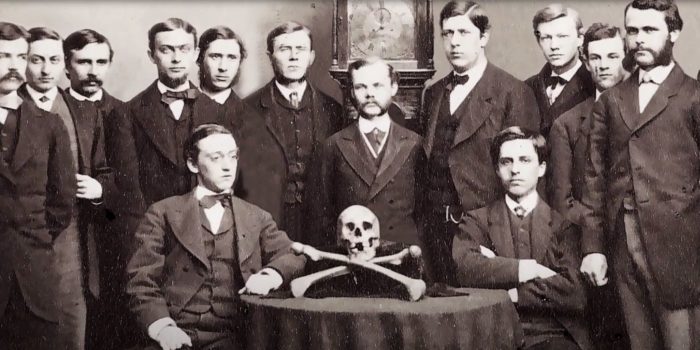(Molly Bruns, Headline USA) One of the most quintessential symbols of systemic power and privilege in the U.S., the Skull and Bones society, has gone woke—with predictably disastrous results, according to a recent report from The Atlantic.
Over the last few years, Yale University’s notorious secret society shifted its elite membership standards from the most intelligent, athletic students from old American families to members of historically marginalized groups.
The organization’s power is based on the access to power that its legacy lends, including three U.S. presidents (two of whom came from the Bush family) and many other influential leaders who put up-and-coming members on the fast track to success.
However, its newly diverse ranks appear intent on tearing down that legacy, effectively imploding from within all that the Skull and Bones represents.
Some might read into its plight a sort of metaphor for the American political establishment at large, which has been hobbled by the Marxist infiltration masquerading as diversity, equity and inclusion.
The Atlantic detailed the change across all of Yale’s secret societies, with the tap lines changing from the football captain or student-body president to students from low-income backgrounds or minority groups.
“People are, intentionally or not, thinking, ‘Does this cohort have too many white people?'” said Ale Canales, a member of another group known as Berzelius. “It’s definitely an undercurrent.”
A member of the Skull and Bones class of 2021 said the group accepted “people from all kinds of backgrounds,” but did not bring in conservative students.
According to the report, students welcomed into these secret societies are usually far-left to left-of-center on the political spectrum.
Skull and Bones only accepted white men until 1991, when they brought in their first female member.
Today’s members of the group still take issue with the lengthy exclusion. Caleb Dunson, a black Yale student and a member of one of Yale’s Ancient Eight secret societies, wrote an article a few years ago arguing that the entire Yale institution should be abolished on the basis of its exclusionary beginnings.
“It started off excluding women and people of color from its student body and now parades them around for diversity photos and social justice brownie points,” he said. “Since we can’t change Yale, we have to tear it down.”
Despite the inherent discriminatory nature of these societies, the social justice warriors rationalize their participation in the tradition by inserting their modern values into them.
In 2019, the Skull and Bones visited alumnus George W. Bush in Texas and confronting the former president for America’s involvement in the wars in Iraq and Afghanistan.
The group also reportedly removed several portraits of predecessors from its headquarters due to the overwhelming number of white males. They replaced them with hand-made signs criticizing the past members for their exclusionary ways.
The Skull and Bones has frequently been subject to conspiracy theories that it played a central role in the development of the federal administrative state (i.e. deep state) during the late 19th and early 20th century, and had an outsize part in influencing American foreign policy—including most of its major wars of the modern era—as well as developing its financial and public-education systems.
Former Hoover Institution scholar Anthony Sutton outlined much of the evidence in his influential 1983 history of the group, America’s Secret Establishment: An Introduction to the Order of Skull & Bones.
The book argues that the society was built around the ideology of Hegelian Statism, believing the state to be supreme to the individual, and used its influence to gradually supplant America’s system of individual freedoms with one of institutional power that made citizens subservient to the ruling class.
Headline USA’s Ben Sellers contributed to this report.

